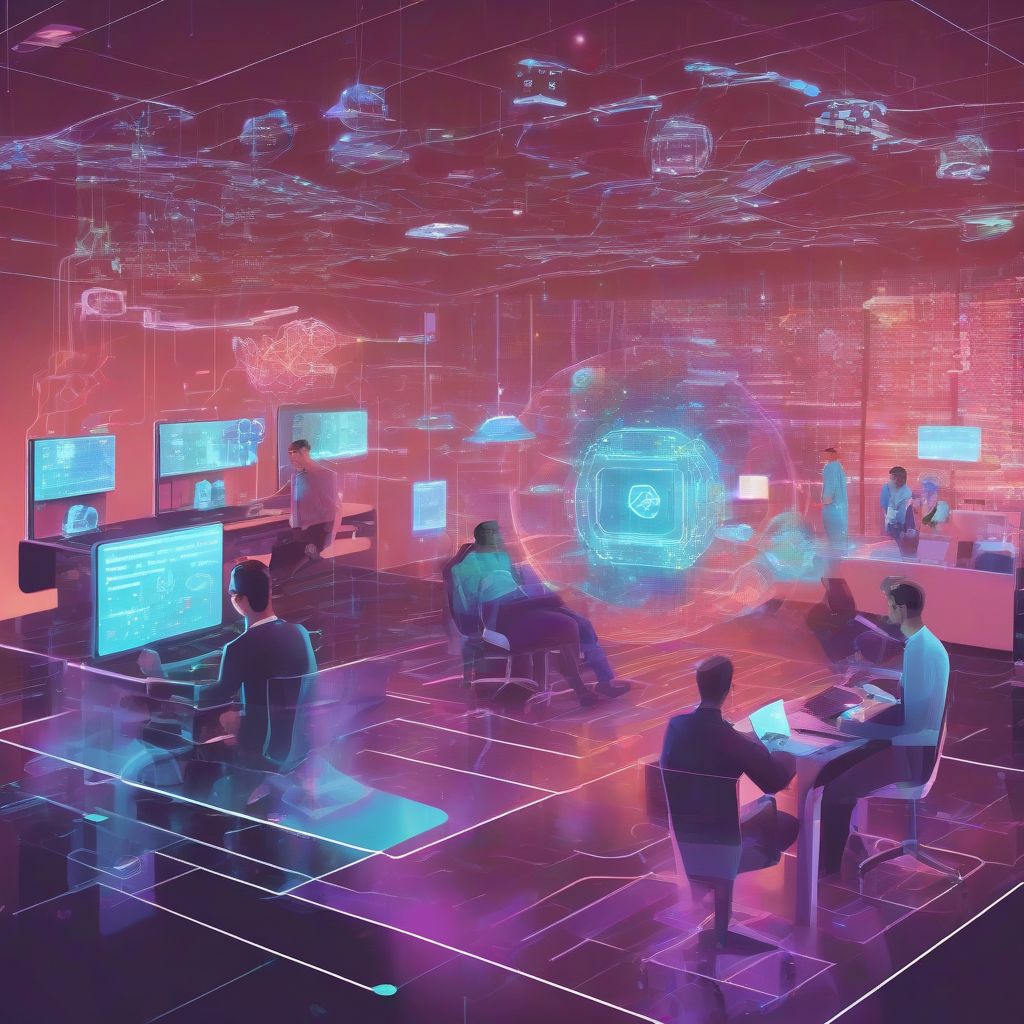Imagine a world where software anticipates your needs, apps learn from your behavior, and coding becomes a conversation. This isn’t science fiction; it’s the reality of AI’s transformative impact on modern software and app development. From automating tedious tasks to unlocking unprecedented levels of personalization, AI is reshaping the digital landscape in profound ways. Let’s delve into how this revolutionary technology is changing the game.
Automating the Mundane, Unleashing Creativity
AI’s ability to automate repetitive tasks is a game-changer for developers. Tasks like bug detection, code generation, and testing can be significantly sped up, freeing up developers to focus on the more creative and strategic aspects of their work. Think of it as having a tireless assistant handling the grunt work, allowing you to focus on the big picture. “AI is like a superpower for developers,” says a lead engineer at a major tech company, “allowing us to tackle more ambitious projects and deliver innovative solutions faster than ever before.”
Code Generation and Completion
AI-powered tools can analyze existing codebases and suggest code completions, significantly accelerating the development process. These tools can even generate entire code blocks based on natural language descriptions, making coding more accessible to non-programmers. Imagine describing the functionality you want, and the AI generates the code for you. This is the power of AI-driven code generation.
Automated Testing and Bug Detection
Testing is a crucial, yet time-consuming, part of the development lifecycle. AI can automate various testing processes, identifying bugs and vulnerabilities with remarkable speed and accuracy. This not only saves time and resources but also leads to higher quality software. “AI-powered testing has revolutionized our QA process,” claims a QA manager at a gaming company, “allowing us to catch bugs earlier and deliver more stable releases.”
Personalization: The AI Advantage
AI empowers developers to create highly personalized user experiences. By analyzing user data, AI algorithms can tailor app content, features, and recommendations to individual preferences. This level of personalization not only enhances user satisfaction but also drives engagement and retention.
Adaptive User Interfaces
AI can create adaptive user interfaces that dynamically adjust to the user’s context and preferences. Imagine an app that automatically changes its layout based on the time of day, the user’s location, or their current activity. This is the future of personalized user experiences.
Content Recommendation and Discovery
AI algorithms can analyze user behavior and preferences to recommend relevant content, products, and services. This is particularly valuable in e-commerce, streaming services, and social media platforms, where personalized recommendations can significantly improve user engagement and drive revenue.
Enhancing User Interaction with AI-Powered Assistants
AI-powered virtual assistants and chatbots are transforming the way users interact with software and apps. These intelligent assistants can answer questions, provide support, and even perform tasks on behalf of the user.
Natural Language Processing (NLP)
NLP enables computers to understand and process human language, allowing users to interact with software in a more natural and intuitive way. Imagine simply telling your app what you want, and it understands and responds accordingly. This is the power of NLP.
Conversational Interfaces
Conversational interfaces, powered by AI, are becoming increasingly popular. Chatbots and voice assistants allow users to interact with apps through natural language conversations, making technology more accessible and user-friendly. “Conversational interfaces are changing the game,” states a UX designer, “making technology more human and intuitive.”
Challenges and Considerations
While the potential of AI in software development is immense, there are also challenges to consider. Ensuring data privacy, mitigating bias in algorithms, and managing the ethical implications of AI are crucial for responsible development.
Data Privacy and Security
AI systems often rely on vast amounts of user data. Protecting this data and ensuring user privacy is paramount. Developers must prioritize data security and implement robust privacy measures.
Bias in AI Algorithms
AI algorithms can inherit and amplify biases present in the data they are trained on. Addressing this issue and developing fair and unbiased algorithms is essential for building ethical AI systems.
The Future of AI in Software Development
The role of AI in software development is only going to expand in the coming years. As AI technology continues to evolve, we can expect even more innovative applications and further automation of the development lifecycle.
 AI-Powered Software Development
AI-Powered Software Development
Conclusion
AI is revolutionizing software and app development, automating tedious tasks, enabling personalized experiences, and enhancing user interaction. By embracing AI, developers can create more innovative, efficient, and user-friendly software that caters to the evolving needs of the digital age. While there are challenges to overcome, the potential of AI is undeniable, and its transformative impact on the software development landscape is only just beginning. What are your thoughts on how AI is shaping the future of software? Share your perspectives in the comments below and let’s continue the conversation!



